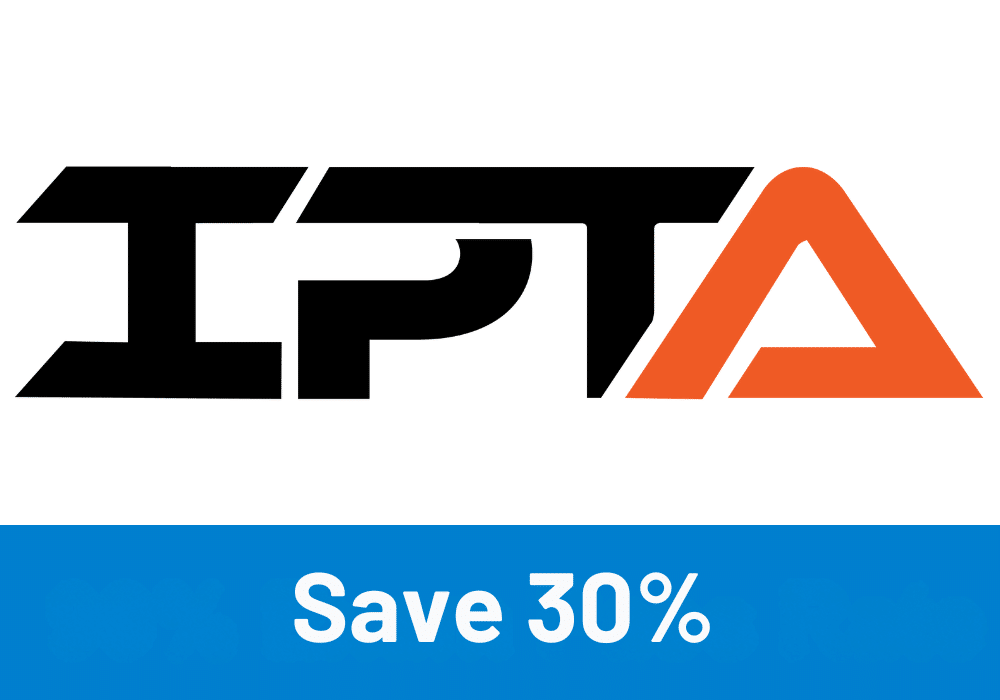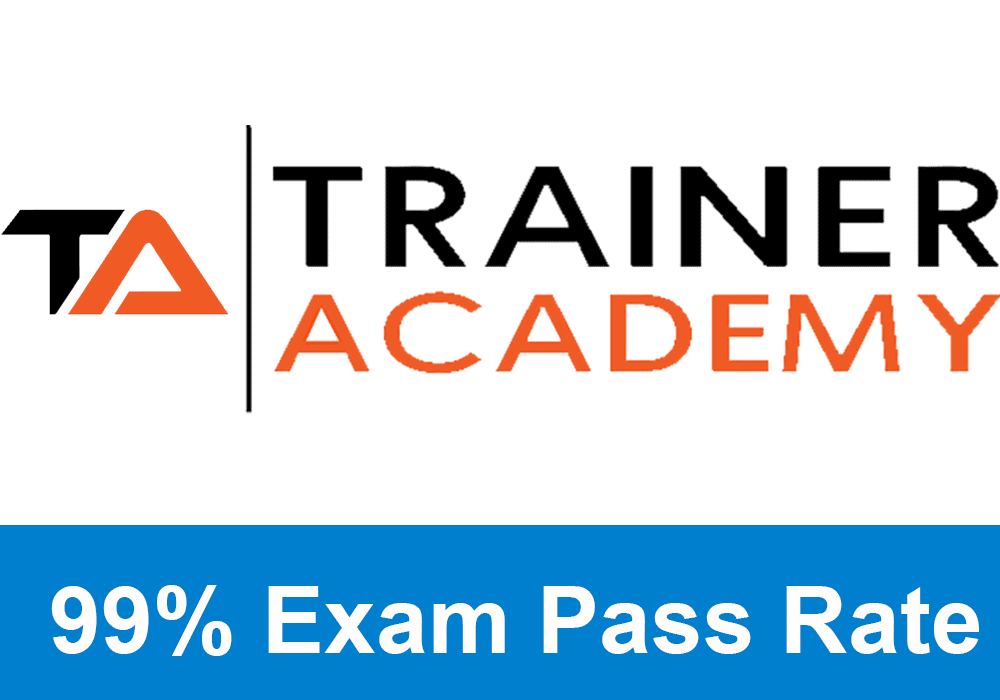Hello, and welcome to another PT Pioneer certification review.
I will deep dive into the International Fitness Professionals Association in this article.
The aim is to provide you with enough insight, clarity, and information to make an informed decision on whether or not this is the right certification for you.
We will focus on the following:
- IFPA Pros and Cons
- Cost and Quality of Study Materials
- Exam Difficulty and Pass Rate
- Retake fee, average income, and much more
I suggest you take the quiz. This quiz is designed to help give you an idea of the best certification based on your circumstances and aspirations.
And with that out of the way, let’s jump into it.

About International Fitness Professionals Association
The International Fitness Professionals Association is a certifying agency founded in 1994.
Being relatively new, IFPA has made remarkable strides in recognition and quality of service.
In 2011, IFPA began its global expansion by setting up an affiliate base in South Korea. Since then, they have increased their global reach by implementing an online administration.
IFPA is an NCCA-accredited certifying institute, but we’ll get more into that later.
Pros and Cons
Now, for everything good, there must be a few things bad. Even if something may seem perfect, a few aspects or variables might not work for you as an individual.
I want to start with some of the pros and cons of IFPA, so you can begin forming a picture in your head.
Pros
- International and Online
- Well priced with a wide variety of options.
- Relaxed recertification policy
- NCCA Accreditation
IFPA is on a quest to become a globally recognized and relevant certification.
While many of the top tier certs in the North American market have an extensive reputation worldwide, only a handful are available and applicable internationally.
ISSA is an example of a big-name certification that has established an international placement, and it seems IFPA is willing to follow suit.
The certification is well-priced, with a variety of options and packages to choose from.
This makes it a flexible and broadly available option for many.
Once you’ve gained your certification, you will, at some point, be required to recertify.
In most cases, this will be after two years from initial certification, which will cycle continuously thereafter.
IFPA is no different regarding the two-year cycle; however, the difference comes in when you look at their CEU requirements.
I’ll get more into CEUs later, but for now, all you need to know is that IFPA requires less of these than you’d normally encounter.
The last big win for IFPA is accreditation.
It is an NCCA-accredited certification, which is excellent news.
Cons
- Less recognized than the top tier certs
- The focus of exam content seems a bit skewed
One drawback of IFPA is that it isn’t as popular or recognized as ACE, ISSA, or NASM.
That function of its relative newness will only improve with time and consistency.
However, this is important because the popularity and recognition of your credentials can significantly influence their relevance in getting your job placement.
Another flaw, In my opinion, is how the final exam is weighted. Despite the claims that it is based on industry statistics, I still struggle to understand how the exam’s focus was distributed.
It isn’t a major discrepancy, but I’ll investigate it later in this article.
Accreditation
Accreditation is an important verification symbol granted to only the best and most relevant certifying institutions.
Accreditation means a cert agency has met all the minimum standard requirements for operation.
These requirements include the quality and relevance of the content, the method of delivery and administration, and the consistent maintenance of these standards.
In other words, what is being taught has to be in line with scientific and academic standards, how it’s being taught needs to be effective and above board, and all of this needs to be maintained and managed.
In the case of the IFPA, accreditation is awarded by the NCCA.
Exclusive PTP CPT Offers |
||
|---|---|---|
Most Popular Cert | Best Online NCCA Cert | Best Study Materials |
Gold Standard Cert | A Good Option | Best CPT for you?  |
The NCCA stands for the National Commission for Certifying Agencies. It is considered the gold standard in fitness certification.
A cert bearing the NCCA badge is usually an automatic foot in the door.
But besides the industry recognition, opportunities, and quality guarantee accreditation provide, it’s also a good way to help steer clear of scam certs.
Trust me; thousands of less-than-ideal online fitness courses are posing as legitimate academic experiences. Looking out for the NCCA sticker could save you money and trouble.
Cost of Study Packages
Next, I want to look at the cost because, as they say, it is king.
As I mentioned, the IFPA CPT cert comes with an excellent range of package options, each priced according to their offer.
They range from purchasing the exam all they way to including all potential bells and whistles.
The available packages are as follows:
- Exam Only $349
- Silver $599
- Gold $749
- Platinum $1049
The Gold Package is touted as the best value for money, according to the IFPA website.
I would say it is pretty reasonably priced since most certification packages with a similar depth of content would normally cost upwards of $800.
The most expensive package, platinum, seems pretty robust, and that price is standard for most NCCA-accredited certs.
Price is one thing; to justify whether a deal is good, you must consider whether what you’re paying for is worth it.
Quality of Study Materials (1-10)
So do the prices indicate the quality of the study packages?
That’s what I’m about to reveal, and to do that; I’ve come up with a study materials rating system.
I will rate the available study materials out of ten based on what’s included, the variety of options, and the relevance toward successful exam preparation.
Materials I look for include:
- Course textbook
- Workbook or study guide
- Practice exams
- Guided study resources
- Multimedia resources
- Student support
First, look at each package to understand what you can expect.
Exam only
- IFPA Exam
Silver Package
- Exam
- Textbook
- Study guide
- Instructional Video
- Practice exam
Gold Package
- Exam
- Textbook
- Study Guide
- Instructional Video
- Weight Training Book
- Practice Exam
- Retest
Platinum Package
- Exam
- Textbook
- Study Guide
- Instructional Workshop Video
- IFPA Training Log
- Weight Training Book
- 2 Volume PT Workbook Set
- Practice Exam
- Retest
First off, the exam-only package is as basic as it could be. Not even the course textbook is included, which means this option would only serve an established professional with a comprehensive grasp of exercise science.
If any proprietary concepts appear in the exam, then the exam-only option would be pointless.
Next, the silver package begins to tick more of my boxes. The textbook is included, along with some other useful materials such as the study guide and practice exam.
The Gold Package stated as the best deal, comes with everything you’d get in the Silver package, an added weight training book and a retest.
I’m assuming the retest in question allows you to retake the exam if you fail, and at no extra charge. I’ll get more into the retake policy later on.
Lastly, we have the Platinum Package.
This, of course, is the complete package, coming with all available materials and carrying the highest price tag.
The extras include some additional workbooks, which I always enjoy, and an IFPA training log.
Overall, they seem to have a great balance of essentials and bonus extras. As often as certification study packs lack essential materials, it is common for them to be over-bloated with stuff you don’t need.
IFPA manages to provide not too much or too little, so I’ll rate them an 8/10.
Points were lost for the exam-only package; I strongly suspect you will still need the textbook at the very least.
Exam Layout and Passing Grade
To have a great game plan and peace of mind, understanding the layout and structure of the exam helps a lot.
Exam structure not only indicates the size and length of the exam, but it also helps you recognize key areas of focus.
Most exams are categorized into domains or sections based on the course curriculum.
Exclusive PTP CPT Offers |
||
|---|---|---|
Most Popular Cert | Best Online NCCA Cert | Best Study Materials |
Gold Standard Cert | A Good Option | Best CPT for you?  |
These sections are not equally scored, so you’ll have some that are much higher overall weighting than others.
The sections or domains with the highest weightings are the ones you should focus on the most.
That isn’t to say neglect the rest; it just means you should divide and spread your prep energy and efforts according to the exam demands.
First, the IFPA exam isn’t massive compared to most others.
It consists of just 105 questions, 5 of which aren’t even scored.
These unscored questions are included for statistical reasons. The examiners take data from these unscored questions to determine if they are a good fit for future iterations of the exam.
You won’t be able to determine which of the five unscored questions, so best to answer them as they come up.
According to the candidate handbook supplied by IFPA, the exam sections are weighted based on a job analysis survey that determines the essential skills and knowledge required for success as a PT.
Based on that data, the exam is weighted as follows:
- Physiology/ Exercise Science 15%
- Exercise Management 17%
- Program Design 15%
- Exercise Prescription 16%
- Fitness Testing & Assessment 15%
- Nutrition Education 8%
- Client Consulting 9%
Now they say this distribution is based on indicators of success in the PT job market, but I can’t help but be a bit confused.
Typically, your job as a personal trainer consists of assessing clients and programming their fitness plans.
The less practical, more academic aspects, such as anatomy and exercise science, are important but not immediately essential during practice.
In this case, however, program design is the third most important, with client consultation and assessment being the fourth most important.
These two are the top focus areas, so I have a tiny issue.
In any case, you will need to score at least 80% to pass.
Most certifications I’ve reviewed or taken require something within the 70-75% range as a passing grade, so it’s somewhat unique seeing a comparatively high pass requirement.
Exam Difficulty and Pass Rate
Now that you know what the exam looks like, let’s deal with how it feels, and by that, I mean difficulty.
So this is where things get somewhat interesting.
That’s because the IFPA exam seems to be PRETTY DARN EASY!
The exam pass rate is only 72%, with a fail rate of 28%.
That means most candidates have a good chance of success.
That’s a promising statistic, to say the least, rivaling ISSA, which has one of the easiest-to-pass exams.
It is important to mention that these statistics are based on data from 2018, so a lot has potentially changed.
Whatever the case, I couldn’t find any up-to-date statistics regarding the pass rate, so it would be safer to assume that it is still the same.
My advice is to prep well and prep hard. Despite how easy the exam may seem, 28% percent is still significant odds.
The biggest favor you can do yourself regarding exam prep is to lay out a master plan.
Manage your time and structure your study content accordingly.
You can create a guided study plan that lays out all your study content in an easy-to-follow timetable leading up to the exam.
Trainer Academy has developed some simple solutions in their MVP packages around this concept. Check them out when you’re ready to optimize your studies.
Retake Fee
Sometimes things don’t go according to plan, and if the pass rate statistics of the IFPA are still relevant, that’s unlikely but still quite possible.
If you fail an exam, most certifications will allow you to retake it for a nominal fee and after a required cooldown period.
IFPA is no different, allowing candidates to retake the exam upon failure, which probably happens often.
So what’s the damage? How do you go about retaking the exam?
Unless you’ve purchased the exam-only option, you get one free shot at retaking the exam if you fail.
All packages, excluding the Exam only package, include a retake as part of what you’re paying for.
According to the handbook, you will need to wait about three months before being allowed to retake the exam, and if you haven’t purchased a package with a retake voucher, a fee of $79 is required to be allowed to retake the test.
The story’s moral is to try not to fail, even though the odds are not the best, and get anything but the exam-only package.
Expected Study Time
The expected study time varies from cert to cert and candidate to candidate.
A rule of thumb I use for reasonable study time is to take the amount of time you’re allowed, which is the enrollment period, and just over half of that is what you would ideally need to study effectively.
In the case of IFPA, the enrollment period is six months from the time you sign up for your exam deadline.
That means you should take roughly three months or 12 weeks to prepare adequately.
If you follow a well-planned guided study program and stick to a schedule, you’ll be able to manage well within six months.
Average Income
As with any career, it understands that real income potential is important for success.
You need to know how much you can realistically earn since your livelihood, and possibly that of other people will be reliant on how much you can bring home.
I usually like to pull this sort of data cert by cert. Still, after much scouring and prodding around, I couldn’t find comprehensive data on IFPA-certified trainers.
So I’ve done current average income stats for personal trainers in general.
According to salary.com, a personal trainer in the United States makes an average of $61.713.00 annually.
That’s a tasty chunk of change, but many factors must align in your favor to find yourself in such an income bracket or even in a higher percentile.
First of all, aside from your PT cert, any other credentials you may or may not have could influence your income.
For example, it is well understood that trainers with a bachelor’s degree or higher concerning college credentials earn more on average.
Your location also counts a big time towards your earning potential. For example, operating in a major metropolitan city like LA or NYC can boost your income.
Lower-income areas will naturally result in you having a lower income too.
Lastly, your experience and time in the fitness business will impact your income capacity.
The more experienced you are, the more of a reputation you will have built, and the more you can leverage it towards higher rates.
Primary Focus Of Certification
Every certification emphasizes the core fundamentals of human movement and exercises science. These fundamentals are universal and can’t be deviated if you want results.
However, many aspects make a great exercise protocol, and many certifying institutions will pick one of these aspects and sort of niche down on it.
In the case of IFPA, their primary focus is quite general. They equip their trainers to deal with a healthy population.
That means the scope of practice is anything but special population groups.
I’ve gathered that IFPA doesn’t have a proprietary methodology such as ACE’s IFT model or NASM’s OPT model.
CEU Requirements
CEU requirements are a common feature with most certifications.
CEU stands for continuing education units and measures academic credits issued by approved providers. These credits show that as a certified trainer, you have continued to progress your skills and knowledge, or at the very least, maintain an adequate degree of competency.
It would help if you also had them renew your certification; in the case of IFPA, this happens every two years.
CEUs are measured in terms of hours spent on a learning activity. These activities can range from attending workshops to gaining separate credentials.
IFPA requires 12 hours of CEUs, which is considerably less than many of the other tier certs, most of which require 20 hours for each two-year renewal cycle.
This is one of my favorite things about IFPA and is something I think you should also strongly consider.
Certification Take Away
So that’s it for my review of the IFPA CPT certification.
My overall impression is that it’s a decent, well-rounded certification. The exam domain focus is a bit of the tried and trusted track, but it’s still a great overall certification.
One thing I enjoyed was the relaxed CEU requirements for recertification. CEUs can be a pain in the butt; luckily, with IFPA, you only need just over half of what most other certs typically ask for.
It is an NCCA-accredited certification, which is already in my good books. Although it isn’t the most recognized certification, any discerning employer or peer in the fitness industry will be able to appreciate it as a legitimate credential.
That said, I will give IFPA a 3.5 out of 5 rating. Despite being a legitimate qualification, it is somewhat obscure compared to a NASM, ACE, ISSA, or ACSM certification.

 Have a question?
Have a question? 


Tyler Read
PTPioneer Editorial Integrity
All content published on PTPioneer is checked and reviewed extensively by our staff of experienced personal trainers, nutrition coaches, and other Fitness Experts. This is to make sure that the content you are reading is fact-checked for accuracy, contains up-to-date information, and is relevant. We only add trustworthy citations that you can find at the bottom of each article. You can read more about our editorial integrity here.